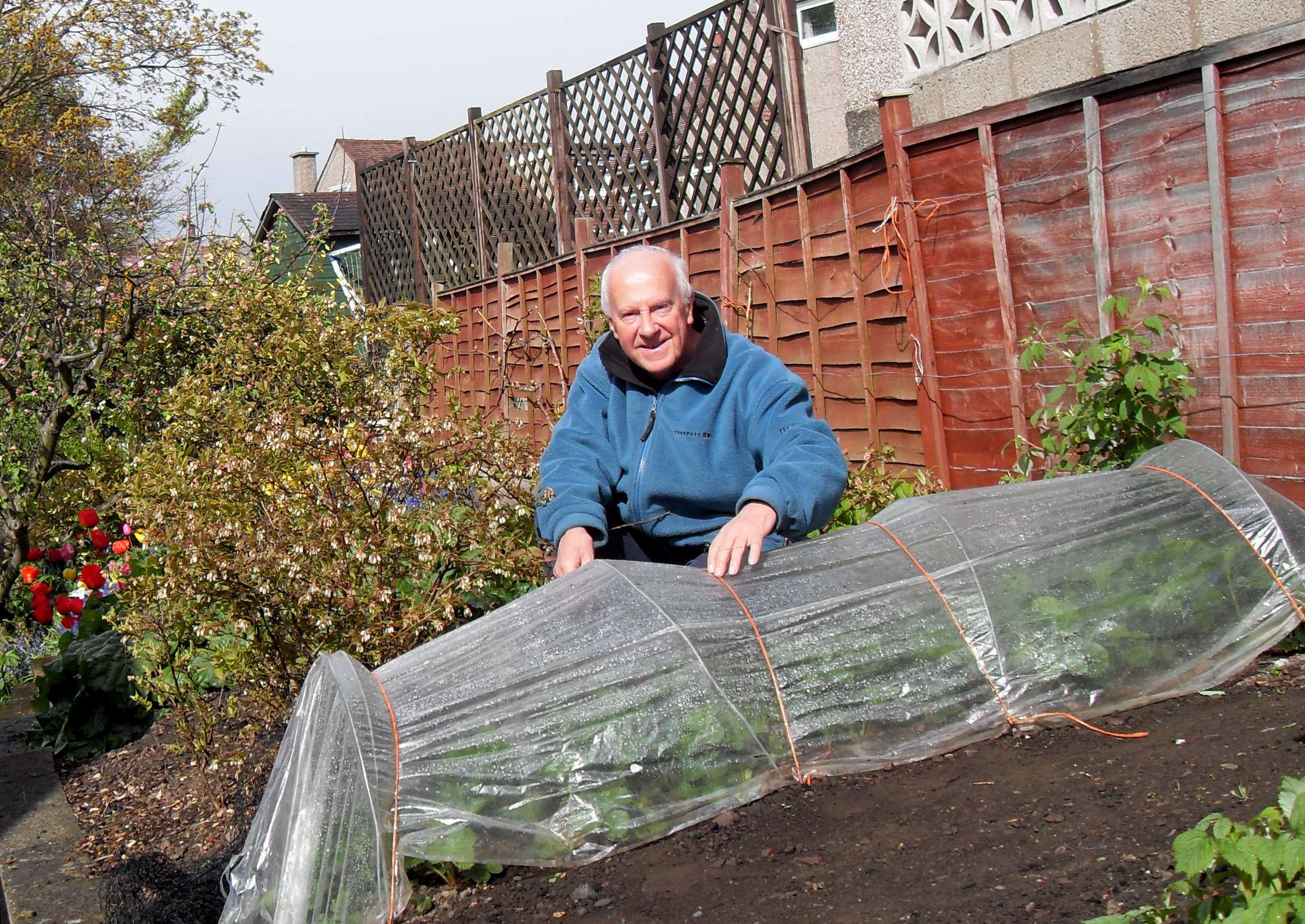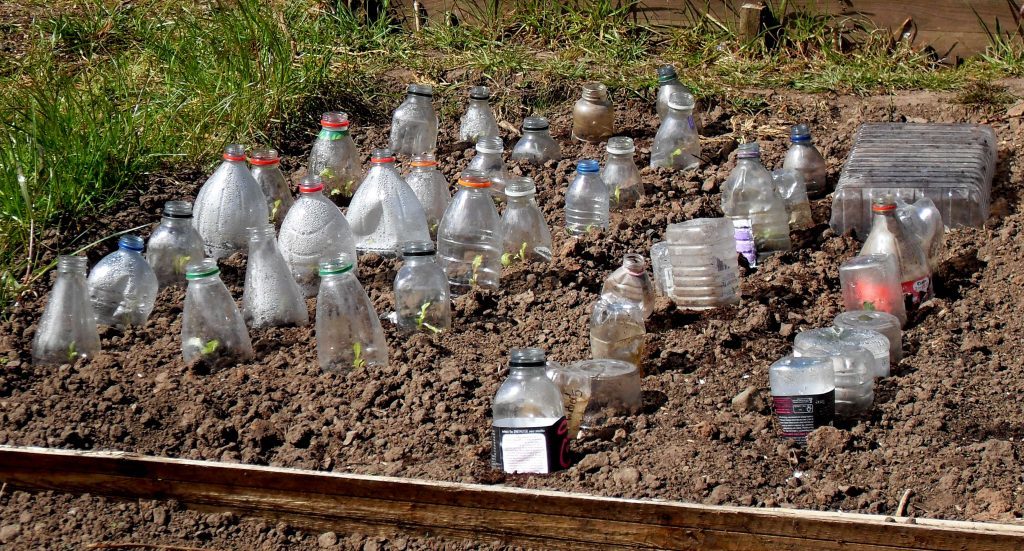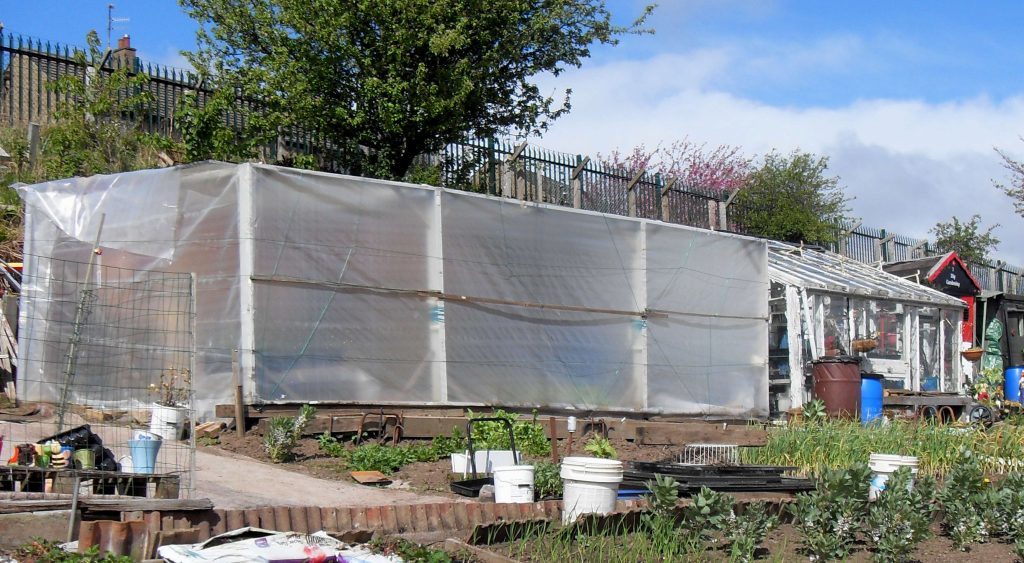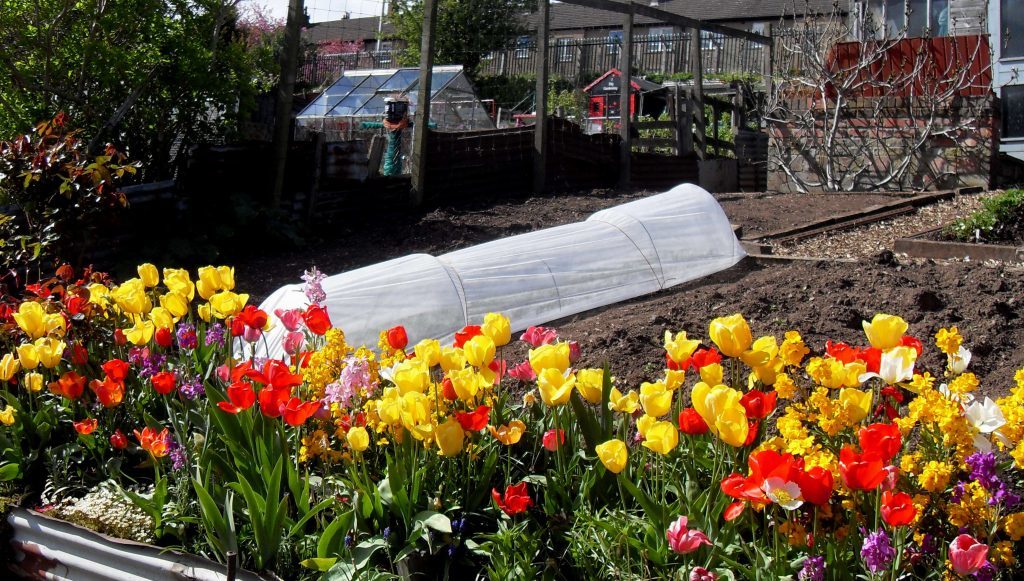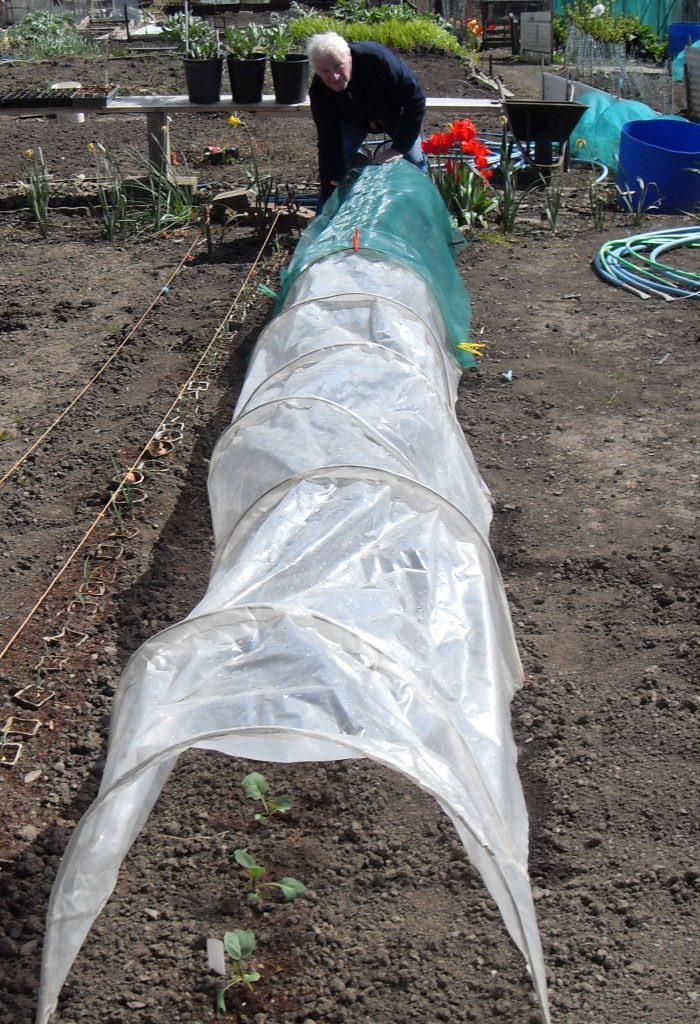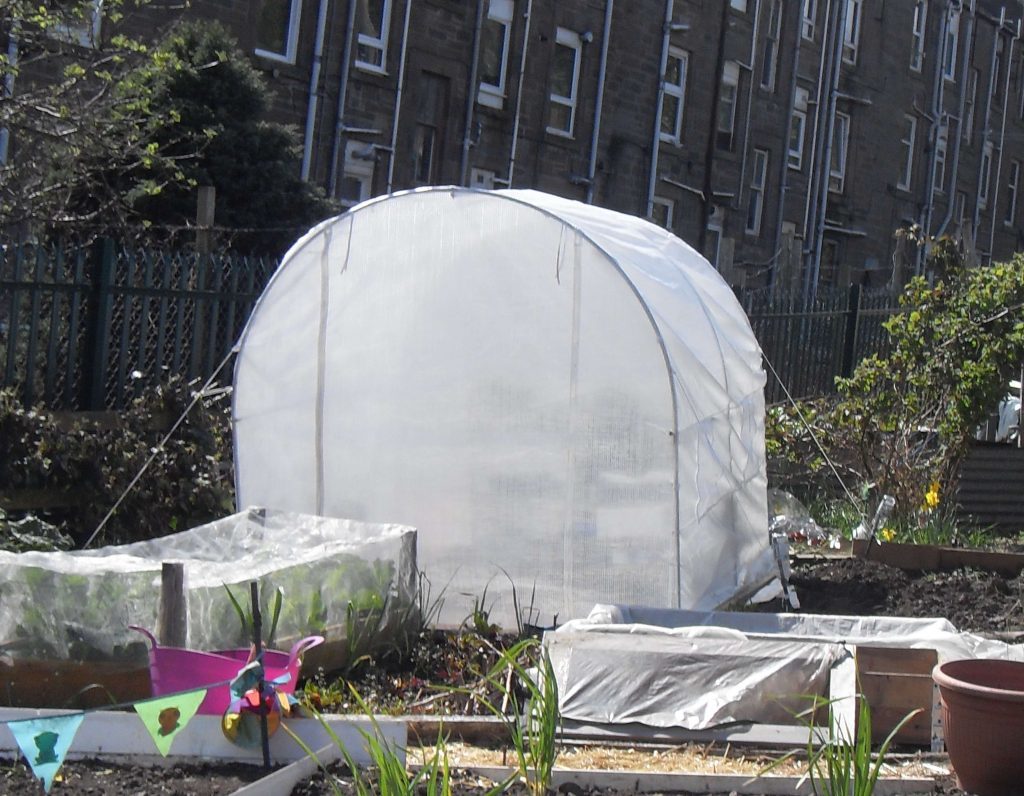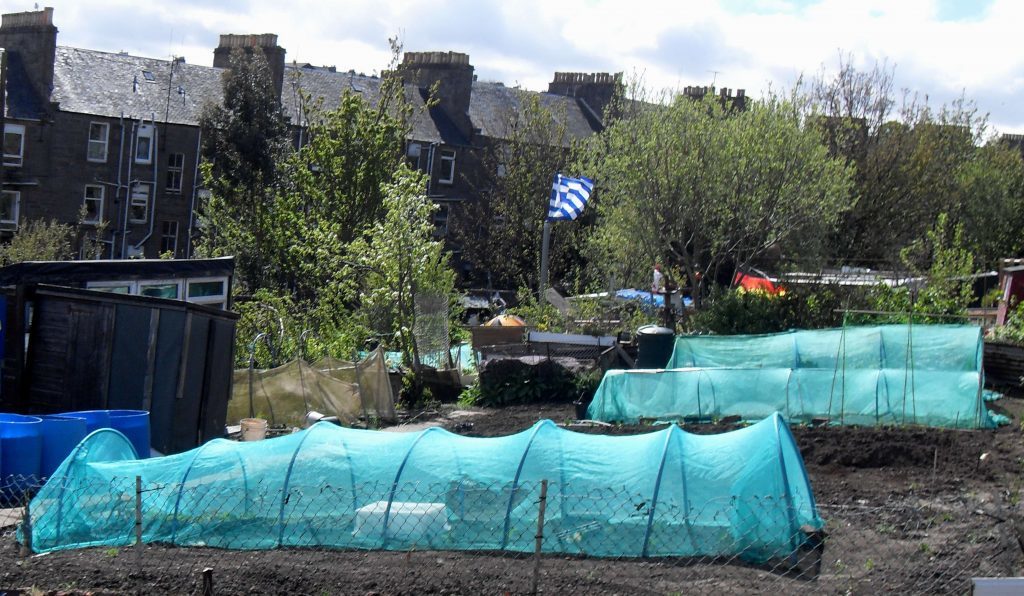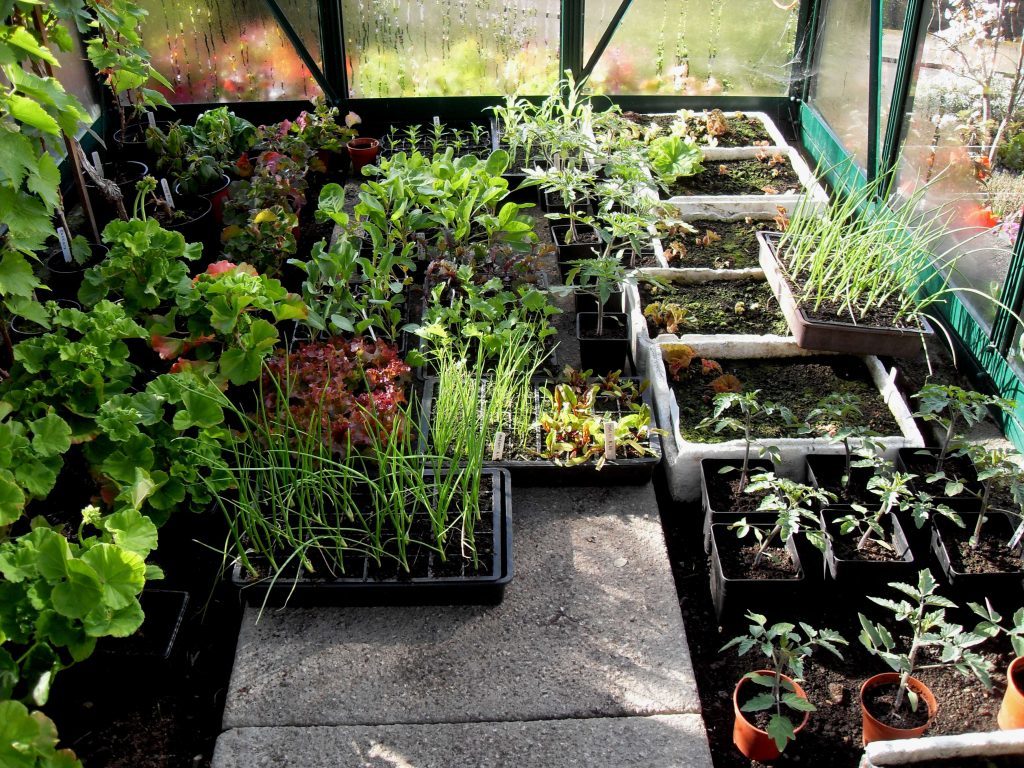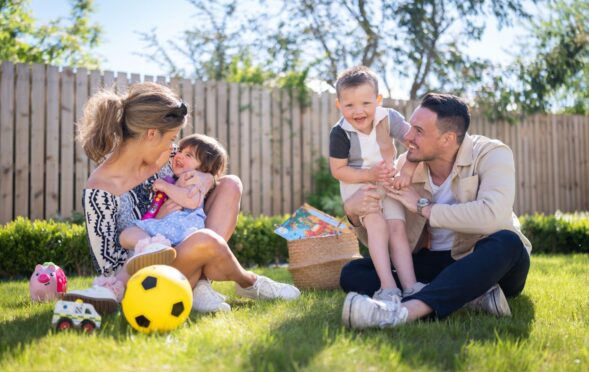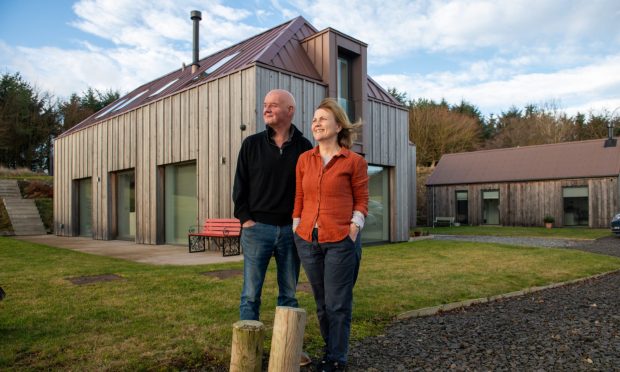The last week in April saw a return to cold winds and frost so care had to be taken to protect vulnerable plants.
Salads, cabbages, dahlias and even my onions from seed which had been hardening off for the last two weeks all went back to the greenhouse for a few days.
Tomato and peppers need warmth so a heater had to be used in the greenhouse while the cold weather persisted.
Today we all enjoy holidays in warmer climates and seeing and enjoying tropical crops we would just love to have some of these back home.
Garden centres and mail order nurseries are also encouraging us by supplying a few specimens to try, and if we accept that global warming may arrive some time soon then we might just be successful with a few exotics.
However, back in Scotland most will likely need some protection from cold winds and frosts.
This is where hedges, shelter belts, walls and fences all play a part.
I use every south facing wall and fence at home and on my allotment to try and grow some exotic with a challenge.
A greenhouse with or without heat is almost an essential for tomatoes, cucumbers, pepper and melons.
If you have a large greenhouse with plenty of space try a kiwi.
Figs and grapes were normal under glass for a long time, but now there are varieties that will give a decent return outdoors though benefit with a warm south facing wall or fence.
Fig Brown Turkey and grapes Rondo, Phoenix and Regent are all showing promise outdoors but I need a few more years to see how they fare.
Cape gooseberries are another exotic that can crop outdoors in a good year if given some protection for a few weeks after planting, but also benefit from a good summer.
In times past it was the practise to have a cold frame on the south side of all greenhouses to harden off plants and even grow some early crops with a bit of protection.
Today these are less common as plastics take over.
Polythene tunnels which are a lot cheaper than a permanent greenhouse are becoming very popular.
They come in all sizes from massive and any length of walk in tunnel to low polythene tunnels and some quite small.
Although most are purchased ready for assembly, some people prefer to build their own with a supply of timber and heavy duty polythene.
Coming down in scale some keen gardeners are quite happy to use plastic bottles with the bottoms cut off and then placed over individual plants to give protection in the early stages of growth.
Protection is also needed from pests which like to lunch on our plants.
From caterpillars on our cabbage, cauliflowers and sprouts to pigeons on the same as well as our young peas and then the blackbirds devouring our strawberries, saskatoons, blueberries and redcurrants.
Even our cherry trees are not safe and difficult to net due to size, and under glass the wasps have discovered that my new grape Seigerrebe is quite sweet, so put word round their mates and now becoming quite a problem.
When you purchase nets to keep birds off crops you are just as well to get one with a finer mesh to use to keep butterflies off the brassicas.
Down at ground level success with carrots would be impossible without fleece protection to keep of the carrot fly, but I wish I could educate our local allotment site cats that these are not hammocks to sleep on or to be used as a scratching pole.
Breeders have given us a great thornless gooseberry, but now our local fox can get into the bushes so sturdy netting has to be put in place as they ripen, or he will eat the lot.
Wee jobs to do this week
Start to collect summer bedding plants for tubs beds and hanging baskets as the spring flowers pass their best and we start to think about our summer displays. Looking ahead I have retained tuberous begonias from last year as well as fuchsias and geraniums in shades of red, pink and white.
I will buy in some petunias, impatiens, French marigolds and trailing lobelias.
I keep spare hanging baskets so I can plant up summer ones, kept in the greenhouse for a couple of weeks to establish, while the spring baskets full of pansies continue to flower.
